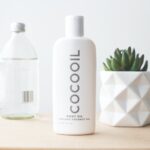Dry skin? Go to a dermatologist
Dry skin is usually not a serious health problem, but it can cause discomfort. It is also just ugly. It is usually caused by environmental factors. These include hot or cold weather, low humidity and too long baths in hot water. We can do a lot to get rid of this problem. First of all, let’s use moisturizers and avoid harsh, drying soaps. Chronic or severe skin problems may require careful evaluation by a dermatologist.
Basic symptoms
The symptoms of dry skin depend on your age, health, where you live, time outdoors, and the cause of the problem. The most common symptoms include:
- feeling of tight skin, especially after bathing, showering or swimming
- rough skin,
- itch,
- mild or strong peeling,
- thin lines or cracks
- gray, ashen skin,
- reddening of the skin
- deep cracks that may bleed.
When is it worth seeing a doctor?
In most cases, it is enough to change your lifestyle and use homemade products. Sometimes, however, a dermatologist has to help us. We should contact him if:
- the condition of the skin does not improve, despite the best measures,
- dry skin is red,
- dry and itchy skin causes sleep problems,
- we have open wounds or scratching infections,
- large areas of skin peel off.
Causes of dry skin
Often times, environmental factors cause dry skin. The most common reasons include:
- Weather – in winter, we may have a problem with dry skin more often. It is influenced by a drop in temperature and humidity.
- Heat – Central heating, wood stoves, heaters and fireplaces reduce humidity and dry out the skin.
- Hot Baths and Showers – Long, hot showers or baths can dry out your skin. If we swim frequently, especially in chlorinated water, we may also have a problem with dry skin.
- Harsh soaps and detergents – Many popular soaps, detergents, and shampoos remove moisture from the skin because they are formulated to remove oil.
- Other skin problems – People with skin conditions such as atopic dermatitis, eczema or psoriasis are prone to dry skin.
Risk factors
Anyone may develop dry skin. But they are more common in:
- We are 40 years old or older. The risk of dry skin increases with age. More than 50% of older people have dry skin.
- We live in a dry, cold or low-humidity climate.
- We do work that requires the skin to be immersed in water, for example a hairdresser taking care and styling the hair of clients and clients.
- Swimming in chlorinated pools frequently.
Complications after dermatological procedures
Usually, dry skin causes no other problems. However, if not properly cared for, it can lead to atopic dermatitis or infection.
If we are prone to atopic dermatitis, excessive dryness can lead to the onset of the disease, causing redness, cracking and inflammation. Dry skin can crack, allowing bacteria to enter, causing infections.
How to prevent?
It is worth following the methods below to get rid of the problem with dry skin.
- Proper hydration – Use moisturizers to keep water in your body.
- Let’s limit exposure to water – let’s shorten the time of bathing and showering to 10 minutes. The water should be warm, but not hot. We should try to bathe no more than once a day.
- Don’t use drying soaps – try cleansing creams, mild skin cleansers, and shower gels with moisturizers.
- Let’s cover as much of our skin as possible in cold weather. Winter can dry out the skin especially. So remember to wear a scarf, hat and gloves when you go outside.
- Let’s put on rubber gloves – if we have to dip our hands in water or use harsh cleaning agents. Wearing gloves can protect your skin.
Skin moisturizers
Flaking, itching, stinging, and gray skin are no fun. Thanks to moisturizers, we can provide the skin with water. Such products use oil to trap the existing moisture. The moisturizer may be in the form of a lotion, oil, ointment or cream. As with facial skin care, it is worth choosing a moisturizing product depending on our skin. Immediately after application, we will find out if the cosmetic suits our needs. We should feel nice and comfortable when we apply it. A moisturizer that doesn’t suit our skin type usually leaves the skin feeling dry, uncomfortable, or even worse.
Lotions and moisturizers with shea butter, jojoba or coconut oil are great for you. We can also choose a deep moisturizing cream because it contains more oil. For very dry skin, choose a product containing urea, lactic acid, hyaluronic acid, dimethicone, lanolin or mineral oil. If we also have sensitive skin, let’s opt for fragrance-free, hypoallergenic moisturizers containing aloe or chamomile.





